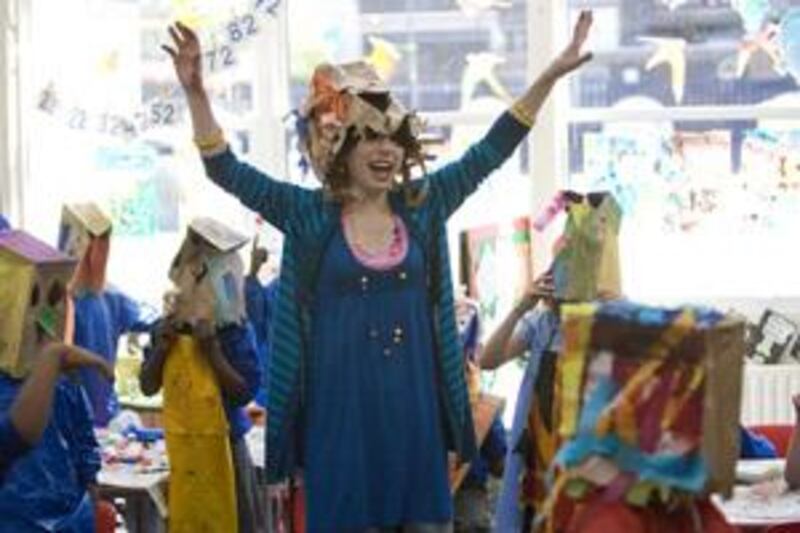With his tales of everyday life beset with tragedy, sadness and loss, the director Mike Leigh has been called a miserabilist on more than one occasion. So the title Happy-Go-Lucky must be an ironic one, right? Wrong.
It refers to the central character, Poppy, played by the Leigh favourite Sally Hawkins. She is a 30-year-old Londoner with eccentric dress sense and a relentless enthusiasm for life. Poppy loves her job teaching in a local primary school, her best mate, Zoe (Alexis Zegerman), and, most importantly, her freedom. She speaks in a never-ending series of giggly wisecracks, which are always sarky but never snide. At times she can be irritating, but it's impossible to question her sincerity.
Anyone who is familiar with Leigh's previous films such as Life Is Sweet, Secrets & Lies or Vera Drake will probably spend the first hour waiting for something hideous to happen or to find out that Poppy's laughter hides a secret pain. But that never really happens. Although there is darkness in Happy-Go-Lucky, the writer-director has essentially created his first feel-good film. The story starts when Poppy's beloved bike is stolen - she is most upset that she never got to say goodbye to it. As a consequence of the theft, she decides to take driving lessons. Her instructor, Scott (Eddie Marsan), seems harmless and awkward at first, but slowly reveals himself to be an angry and paranoid man. Poppy also visits her pregnant sister, who chastises her for wasting her life clubbing and having fun with friends instead of planning for her future.
At school, Poppy notices a child who is becoming violent and, after investigating, discovers that he is being physically abused at home. Perhaps unlike other Leigh films, however, many of Happy-Go-Lucky's darker moments give way to happier ones. After flagging the problem at school, Poppy strikes up a relationship with the male social worker who deals with the child. The film's most heated moment comes in a showdown with the driving instructor, who is revealed as a racist who also harbours a strange obsession with Poppy. It becomes clear that although she wants to bring a smile to the world, she can't make everyone happy.
The film is successful because of fine performances from the cast, but Hawkins and Zegerman are particularly strong as polar opposites. London, seen in a perpetual state of spring, is also one of the film's stars. It has an almost cartoonlike feel, bright and abundant with colour. Very little actually happens in Happy-Go-Lucky but still, it's impossible to watch it without feeling moved. In her dramatic showdown with Scott, the ditsy Poppy reveals herself to be brave, tactful and intelligent. In her, Leigh has crafted his most memorable female character since Brenda Blethyn's Cynthia in Secrets & Lies. Zegerman also deserves a mention for her turn as the best friend Zoe. She is funny, cool, droll and - more than anything - believable.
Despite unsettling moments, there are plenty of laughs in the film, not least with Poppy's brief foray into flamenco dancing. In fact, it happily toes the line between drama, comedy and romance without feeling like it's going over old ground. The film also faithfully depicts a new reality in western cities: that more people are growing older with a focus on their careers and friends rather than marriage and children and that many are perfectly content.
Although Happy-Go-Lucky can be seen as a film about nothing, it's really a film about a warm-hearted woman in an imperfect world. Stunningly brought to life by Leigh and Hawkins, Poppy is a character whom some might find annoying, but she is nonetheless endlessly watchable.





